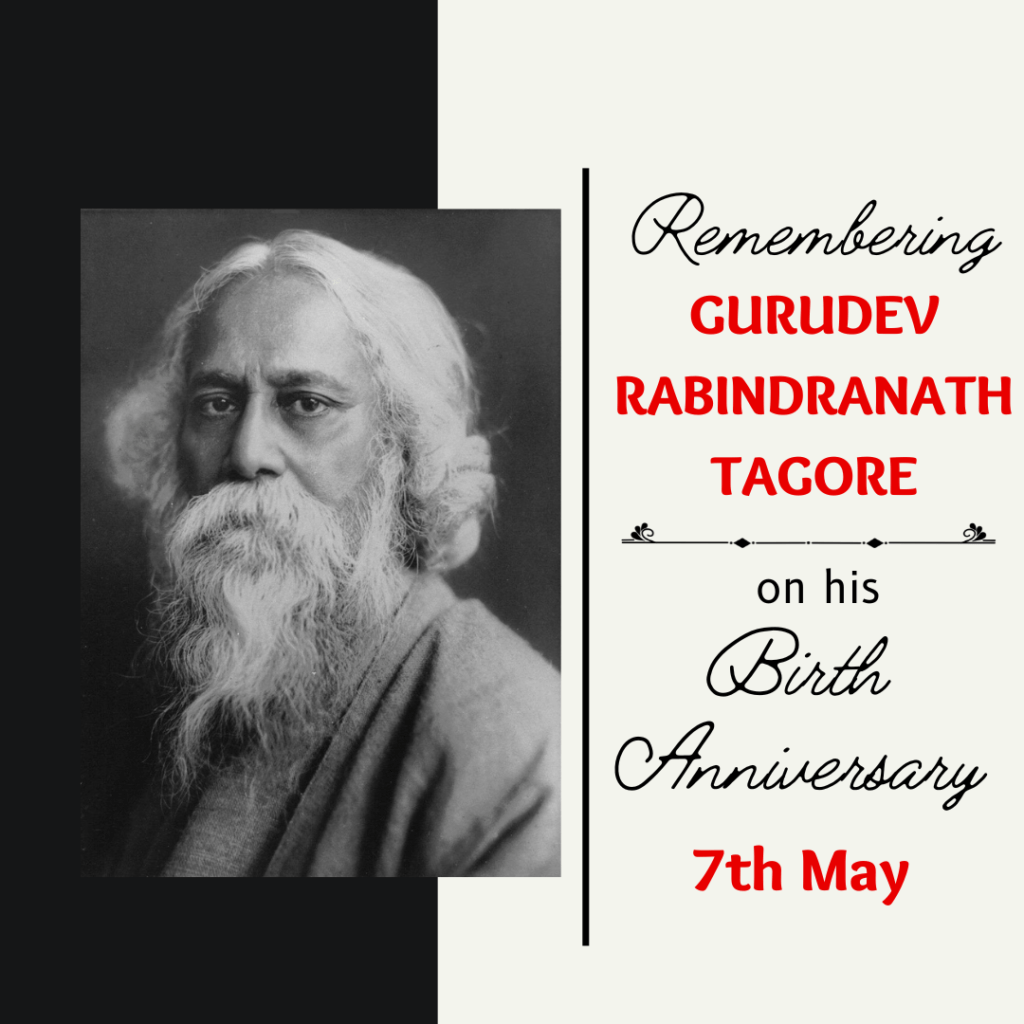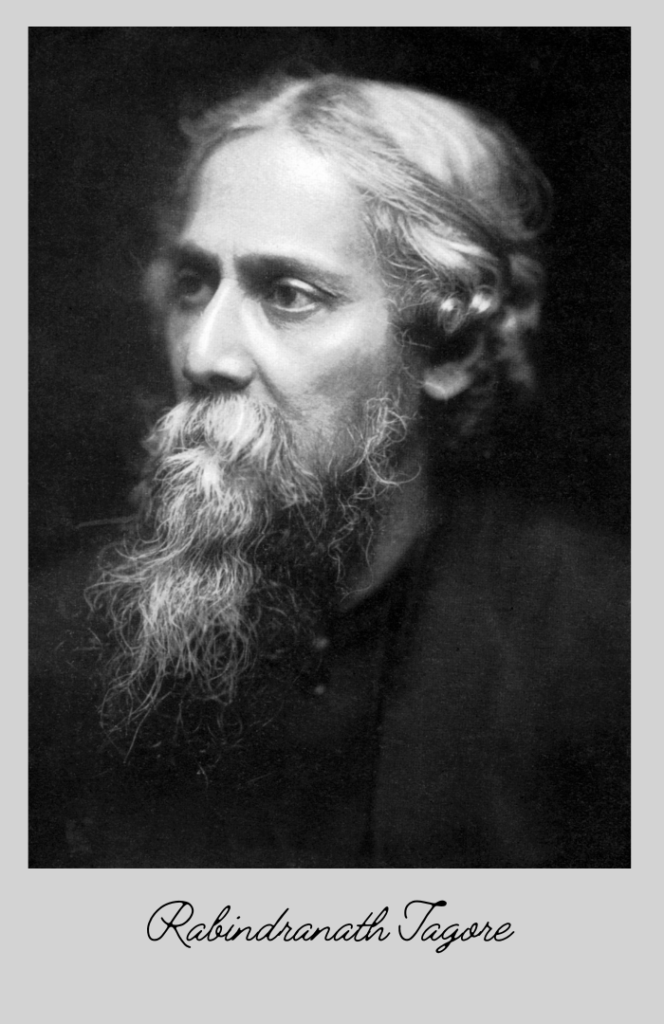Rabindranath Tagore, often referred to as Gurudev, is a name that resonates with the essence of Indian culture and literature. Born on May 7, 1861, in Kolkata, India, Tagore was a polymath who left an indelible mark on the world through his prolific writings, poetic brilliance, musical compositions, and tireless efforts for social reform.

As the first non-European Nobel laureate in Literature, Tagore’s contributions continue to inspire generations, transcending geographical and cultural boundaries. This unique content delves into the life, works, and enduring legacy of the extraordinary man who is Rabindranath Tagore.
Early Life and Literary Journey:
Rabindranath Tagore hailed from a distinguished Bengali family that played a significant role in the cultural and intellectual awakening of India. Despite being born into privilege, he was deeply connected to the suffering of the common people. Tagore’s literary journey began at an early age when he started writing poems and short stories. His first collection of poems, published under the title “Kabi Kahini” (The Poet’s Tale), garnered attention for its poetic beauty and introspective themes. Tagore’s exploration of nature, love, spirituality, and the human condition became hallmarks of his extensive body of work.
Gitanjali: The Song Offerings to the World:

In 1913, Rabindranath Tagore gained international acclaim with the release of Gitanjali (Song Offerings), a collection of poems he translated from Bengali into English. This collection introduced readers worldwide to Tagore’s unique blend of spirituality and poetic expression. Through the verses of Gitanjali, Tagore explored deep themes such as devotion, the human quest for meaning, and the connection between the soul and the divine. The poems reflect his contemplative insights into life and spirituality, conveying universal emotions with profound simplicity.
Gitanjali struck a chord with readers across the globe, transcending cultural and language barriers with its timeless themes of love, truth, and unity. The beauty of Tagore’s writing lay in its ability to resonate with readers from diverse backgrounds, offering them moments of reflection and a deeper understanding of the human condition. His work encouraged contemplation of one’s relationship with the divine with humanity.
.
Social and Educational Reformer:
Beyond his literary achievements, Tagore was deeply invested in social and educational reforms. He founded the renowned Visva-Bharati University in Santiniketan, West Bengal, which aimed to combine the best of Western and Indian education systems. This institution became a melting pot of cultures, fostering intellectual exchanges between scholars, artists, and students from around the world. Tagore believed that education should be holistic, nurturing the individual’s mind, body, and soul, and promoting creativity, critical thinking, and compassion.
Influence on Art and Music:
Rabindranath Tagore’s creativity extended beyond literature to encompass art and music. He was a proficient painter, and his artwork beautifully complemented his poetic expressions. Additionally, Tagore composed over 2,000 songs, which are collectively known as “Rabindra Sangeet.” These melodies, blending classical and folk elements, captivated listeners with their lyrical depth and emotional resonance. Rabindra Sangeet remains an integral part of Bengali culture, preserving Tagore’s musical genius and his ability to evoke a range of emotions.
Legacy and Global Impact of Rabindranath Tagore:
Even after his passing on August 7, 1941, Tagore’s legacy endures. His writings continue to be celebrated, translated, and studied worldwide, showcasing his timeless relevance and profound insights into the human experience. Tagore’s philosophy emphasized the importance of self-realization, harmony between individuals and nature, and the need for a universal brotherhood transcending divisions of caste, creed, and nationality. His ideas on education, spirituality, and social progress continue to influence thinkers, artists, and leaders globally.
Conclusion:
Rabindranath Tagore was a multifaceted genius whose literary, artistic, and philosophical
For more updates – Today News





































